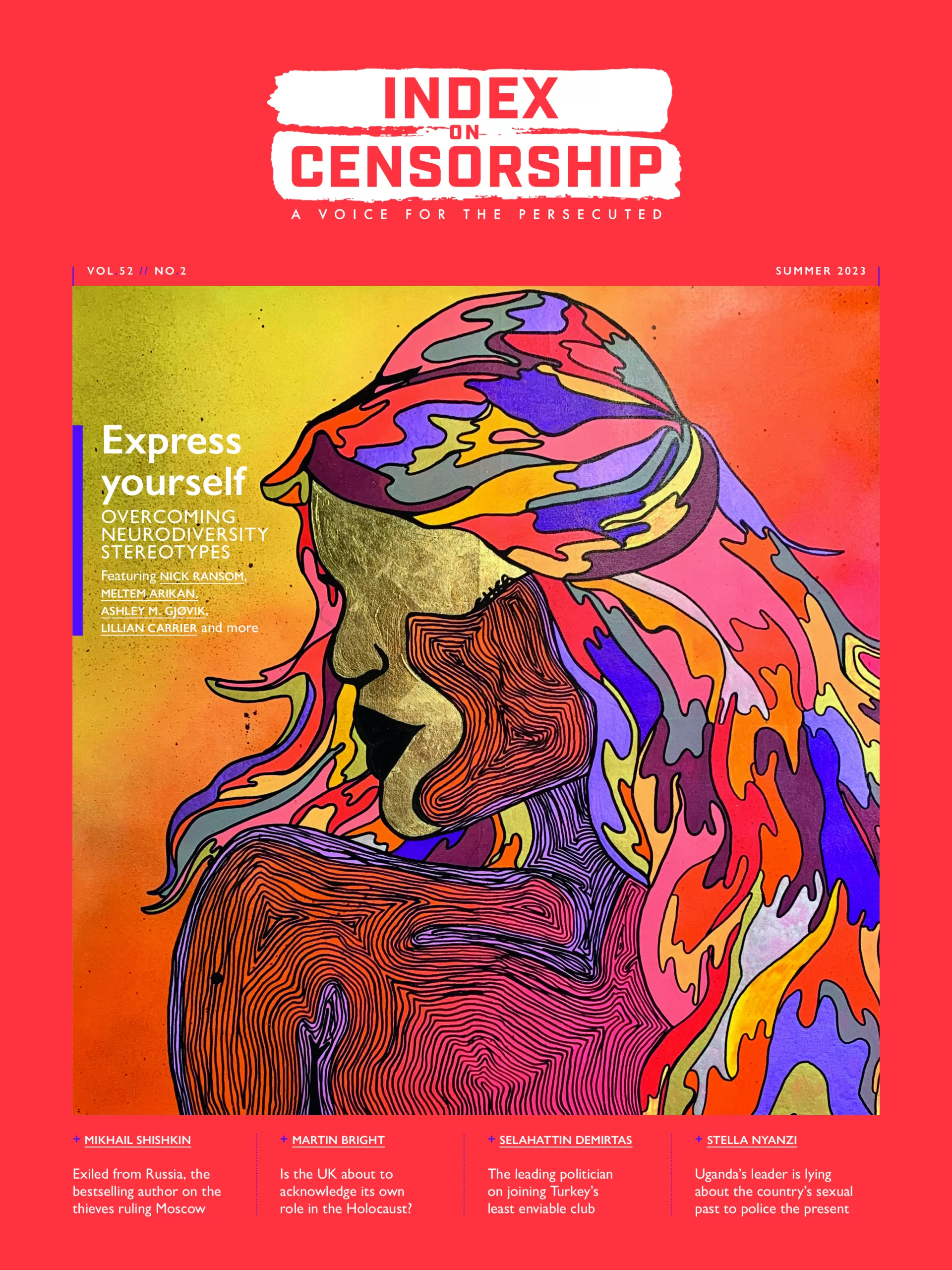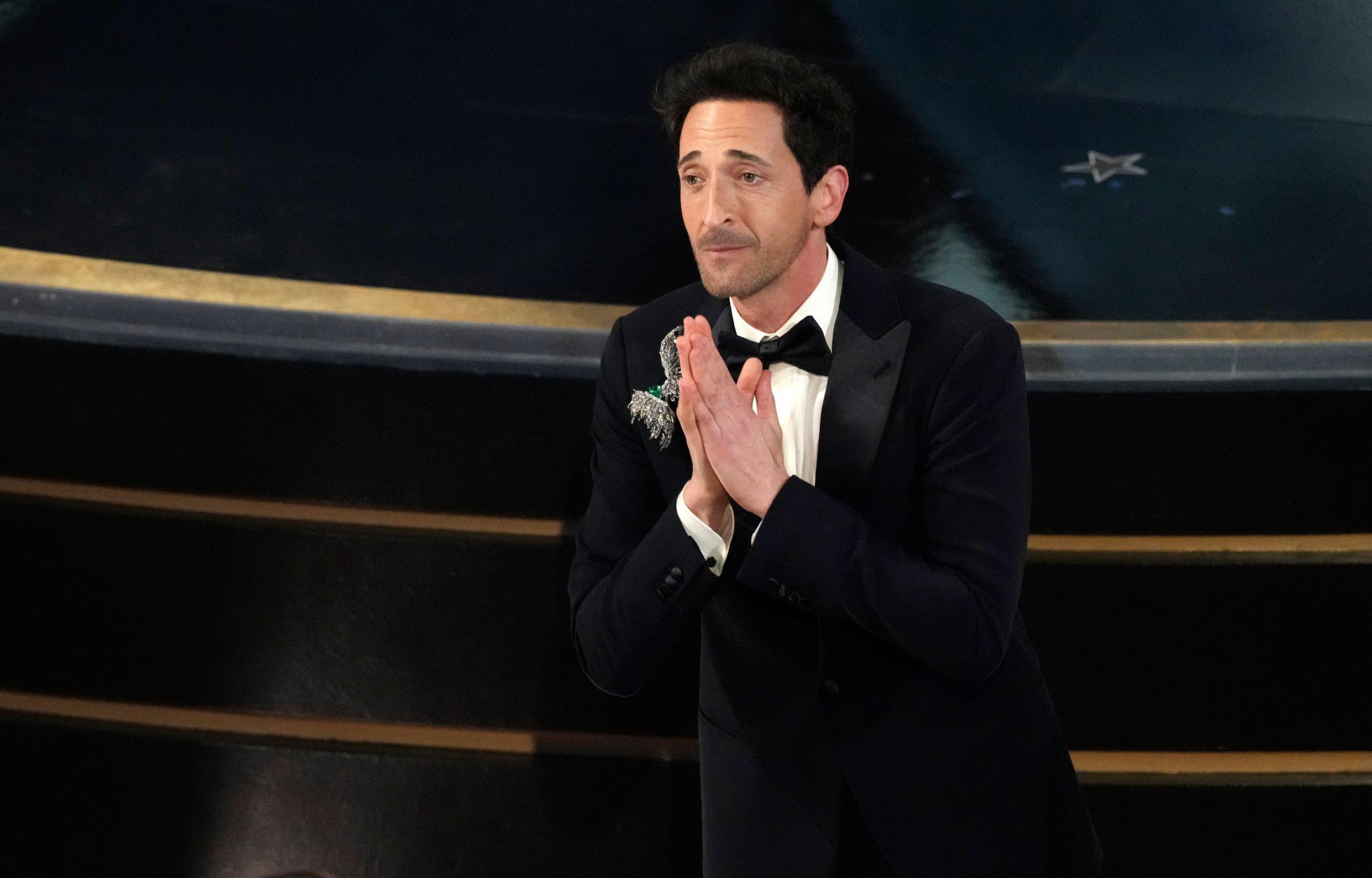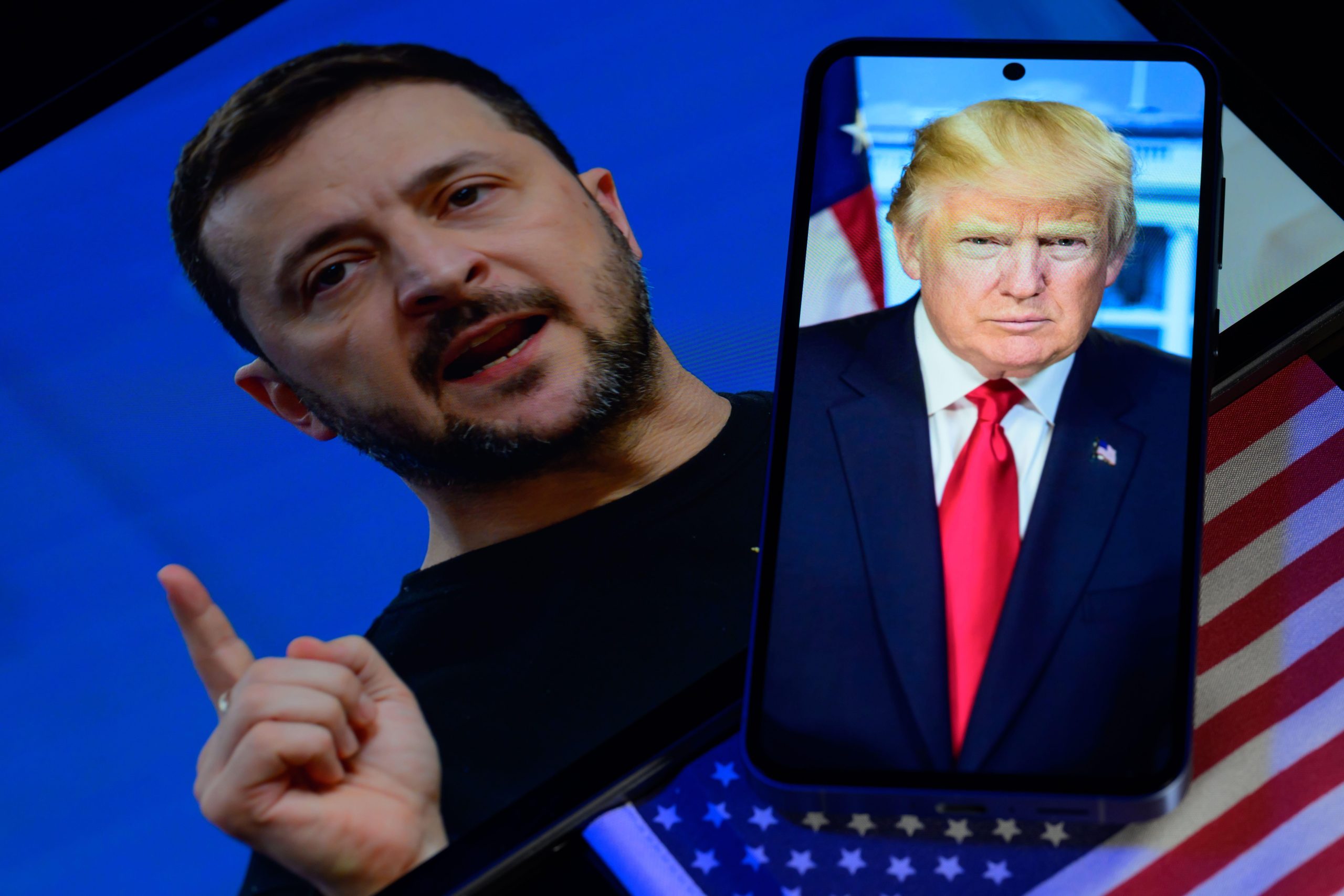Contents
The Summer 2023 issue of Index looks at neurodiversity, the term coined in the late 1990s to identify and promote the positives of variation in human thinking which has become more widely used in the past few years. Are old stereotypes still rife? Has the perception of neurodiversity improved? If not, was this because of censorship? Using neurodivergent voices, we wanted to know about this in a global context.
The majority of the articles are written by neurodivergent people, as we wanted to put their voices front and centre. Many said they did have more of a voice, awareness had shot up and the word “neurodiversity” empowered and welcomed a growth in onscreen representation. However, at the same time it was clear that conversations around neurodiversity were playing out along society’s current fault-lines and were far from immune.
Up Front
Mind matters, by Jemimah Seinfeld: The term neurodiversity has positively challenged how we approach our minds. Has it done enough?
The Index, by Mark Frary: The latest in free expression news, from an explainer on Sudan to a cha-cha-cha starring Meghan and King Charles.
Features
Bars can't stop a bestseller, by Kaya Genç: Fiction is finding its way out of a Turkish prison, says former presidential hopeful and bestselling writer
Selahattin Demirtaş.
Don't mention femicide, by Chris Havler-Barrett: Murdered women are an inconvenience for Mexico’s president.
This is no joke, by Qian Gong and Jian Xu: The treatment of China’s comedians is no laughing matter.
Silent Disco, by Andrew Mambondiyani: Politicians are purging playlists in Zimbabwe, and musicians are speaking out.
When the Russians came, by Alina Smutko, Taras Ibragimov and Aliona Savchuk: The view from inside occupied Crimea, through the cameras of photographers banned by the Kremlin.
The language of war and peace, by JP O’Malley: Kremlin-declared “Russophobe foreign agent and traitor” Mikhail Shishkin lays out the impossible choices for Russians.
Writer's block, by Stacey Tsui: Hong Kong’s journalists are making themselves heard, thanks to blockchain technology.
The Russians risking it all, by Katie Dancey-Downs: Forced to sing songs and labelled as extremists, anti-war Russians are finding creative ways to take a stand.
The 'truth' is in the tea, by Jemimah Steinfeld: Spilling the tea on a London venue, which found itself in hot water due to a far-right speaker.
Waiting for China's tap on the shoulder, by Chu Yang: However far they travel, there’s no safe haven for journalists and academics who criticise China.
When the old fox walks the tightrope, by Danson Kahyana: An interview with Stella Nyanzi on Uganda’s latest anti-LGBTQ+ law.
Would the media lie to you?, by Ali Latifi: Fake news is flourishing in Afghanistan, in ways people might not expect.
Britain's Holocaust island, by Martin Bright: Confronting Britain’s painful secret, and why we must acknowledge what happened on Nazi-occupied Alderney.
The thorn in Vietnam's civil society side, by Thiện Việt: Thiện Việt: Responding to mass suppression with well-organised disruption.
Special Report: Express yoruself: Overcoming neurodiversity stereotypes
Not a slur, by Nick Ransom: What’s in a word? Exploring representation, and the power of the term “neurodiversity” to divide or unite.
Sit down, shut up, by Katharine P Beals: The speech of autistic non-speakers is being hijacked.
Fake it till you break it, by Morgan Barbour: Social media influencers are putting dissociative identity disorder in the spotlight, but some are accused of faking it.
Weaponising difference, by Simone Dias Marques: Ableist slurs in Brazil are equating neurodivergence with criminality.
Autism on screen is gonna be okay, by Katie Dancey-Downs: The Rain Man days are over. Everything’s Gonna Be Okay star Lillian Carrier digs into autism on screen.
Raising Malaysia's roof, by Francis Clarke: In a comedy club in Malaysia’s capital stand up is where people open up, says comedian Juliana Heng.
Living in the Shadows, by Ashley Gjøvik: When successful camouflage has a lasting impact.
Nigeria's crucible, by Ugonna-Ora Owoh: Between silence and lack of understanding, Nigeria’s neurodiverse are being mistreated.
My autism is not a lie, by Meltem Arikan: An autism diagnosis at 52 liberated a dissident playwright, but there’s no space for her truth in Turkey.
Comment
Lived experience, to a point, by Julian Baggini: When it comes to cultural debates, whose expertise carries the most weight?
France: On the road to illiberalism? by Jean-Paul Marthoz: Waving au revoir to the right to criticise.
Monitoring terrorists, gangs - and historians, by Andrew Lownie: The researcher topping the watchlist on his majesty’s secret service.
We are all dissidents, by Ruth Anderson: Calls to disassociate from certain dissidents due to their country of birth are toxic and must be challenged.
Culture
Manuscripts don't burn, by Rebecca Ruth Gould: Honouring the writers silenced by execution in Georgia, and unmuzzling their voices.
Obscenely familiar, by Marc Nash: A book arguing for legalised homosexuality is the spark for a fiction rooted in true events.
A truly graphic tale, by Taha Siddiqui and Zofeen T Ebrahim: A new graphic novel lays bare life on Pakistan’s kill list, finding atheism and a blasphemous tattoo.
A censored day? by Kaya Genç: Unravelling the questions that plague the censor, in a new short story from the Turkish author.
Poetry's peacebuilding tentacles, by Natasha Tripney: Literature has proven its powers of peace over the last decade in Kosovo.
Palestine: I still have hope, by Bassem Eid: Turning to Israel and Palestine, where an activist believes the international community is complicit in the conflict.






